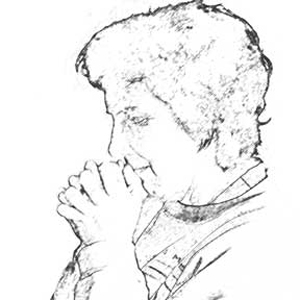
Approaching Care for Dementia
DescriptionThis course is part of the Home Health Aide/Nursing Assistant Training library designed for agency or education institution use as an educational aid and resource in conjunction with hands-on instruction in a lab and or clinical setting supervised by a nurse educator. The agency or education institution is responsible for ensuring the learner has attained the knowledge and care skills, according to their state's requirements, before providing care to a client.
This is a self-paced course with optional knowledge check quizzes after each lesson. These non-graded quizzes allow you to check your understanding of the lesson objectives before proceeding to the next lesson. After the final lesson you will be required to take the final exam. You must score 70% or higher to pass the course and obtain a certificate of completion.
- Discuss aging changes in the brain
- Define dementia
- Identify common signs of dementia
- Name the common types of dementia illnesses
- Recognize specific symptoms of dementia illnesses
- Distinguish the common stages or progression of Alzheimer's disease
- State common behaviors seen in the progression of Alzheimer's
- Identify care strategies or techniques from the patient's history of care.
- Recognize the impact of communication and body language on the cognitively impaired patient's behavior.
- Describe 3 communication methods to be used when caring for the person with dementia
- Identify components of the patient's environment
- Outline strategies for providing a safer environment for the patient with dementia
- Identify special care methods to use in the care of patients with dementia
- State 3 warning signs of a stroke
- Identify potential safety concerns for a patient with a stroke
- Name at least 3 care considerations for patients with one sided weakness or paralysis
- Identify methods to assist the patient with a stoke to eat
- Outline steps for successful communication with a patient who has had a stroke
1.6 Contact Hour: based on 60 minute contact hour
The estimated time for completion for this activity is 1.6 hour(s).
This course is designed to meet the continuing education requirements of healthcare paraprofessionals, such as homehealth aide, nurses aide and personal care attendants.
Kathy Richie - BSN RN Program Director Allied Health Continuing Education Rochester Community and Technical College
Kathy Richie received her Bachelors of Science Degree in Nursing from the College of St. Teresa with a minor in Psychology. She has over 13 years experience in the health care field and a decade of experience in the design, development and provision of adult/healthcare professional continuing education. Kathy also serves as director of the Heartland Regional Geriatric Education Center for southeastern Minnesota, which is supported by the Minnesota Area Geriatric Education Center, part of the University of Minnesota's Center on Aging.
Kathy is a member of the Program Services Committee of the Alzheimer's Association, Minnesota - North Dakota Chapter as well as a member of the Leadership Council for the Alzheimer's Association Southern Minnesota Regional Center.
Materials used in connection with this course may be subject to copyright protection. Retention of the materials for longer than the class term, unauthorized further dissemination of the materials, or use of copyrighted materials in any way other than intended for this class is prohibited by Copyright and Teach Act laws.
This course was developed with Rochester Community and Technical College's Continuing Education and Workforce Development Division located in Rochester Minnesota. Development was funded from the Minnesota State Colleges and Universities System.